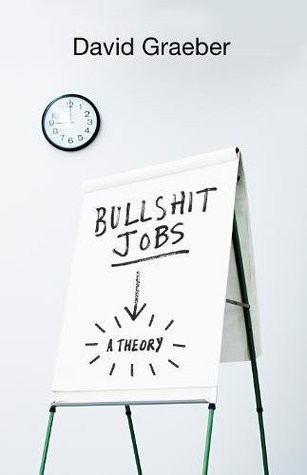Joelle reviewed Bullshit Jobs by David Graeber
Interesting but unnecessarily convoluted
3 stars
The core message and themes of 'Bullshit Jobs' are fascinating and thought provoking. Graeber criticises the flaws of modern capitalism, work culture, and consumerism in a very captivating way, incorporating many entertaining readers' testimonials throughout. The bulk of this however, mostly happens in the seventh and final chapter, following 245 pages of dragged out explanations for simple concepts, written in unnecessarily complex language. The testimonials were by far the most enjoyable part of the first six chapters, because they didn't require me to read paragraphs 3 times over to understand them. (I am not a native English speaker, but i do have C2 proficiency.) In my opinion, the page count of the first 6 chapters could easily be cut in half without losing any real substance, ironically somewhat mirroring one of the main points of criticism Graeber makes throughout his book:
"We could easily become societies of leisure and institute …
The core message and themes of 'Bullshit Jobs' are fascinating and thought provoking. Graeber criticises the flaws of modern capitalism, work culture, and consumerism in a very captivating way, incorporating many entertaining readers' testimonials throughout. The bulk of this however, mostly happens in the seventh and final chapter, following 245 pages of dragged out explanations for simple concepts, written in unnecessarily complex language. The testimonials were by far the most enjoyable part of the first six chapters, because they didn't require me to read paragraphs 3 times over to understand them. (I am not a native English speaker, but i do have C2 proficiency.) In my opinion, the page count of the first 6 chapters could easily be cut in half without losing any real substance, ironically somewhat mirroring one of the main points of criticism Graeber makes throughout his book:
"We could easily become societies of leisure and institute a twenty-hour workweek. Maybe even a fifteen-hour week. Instead, we find ourselves, as a society, condemned to spending most of our time at work, performing tasks that we feel make no difference in the world whatsoever."














